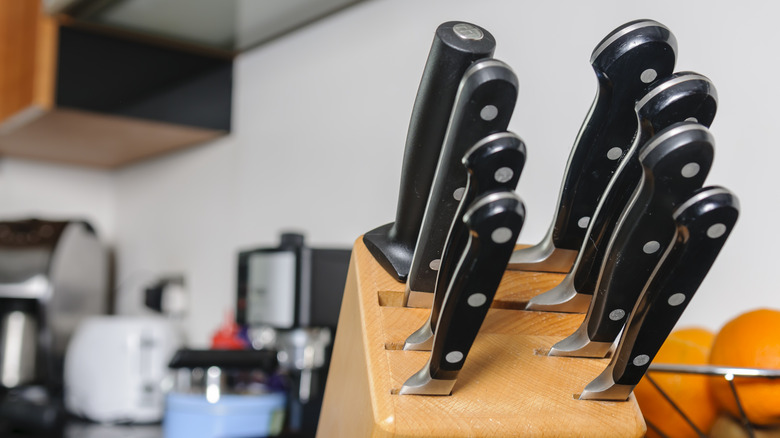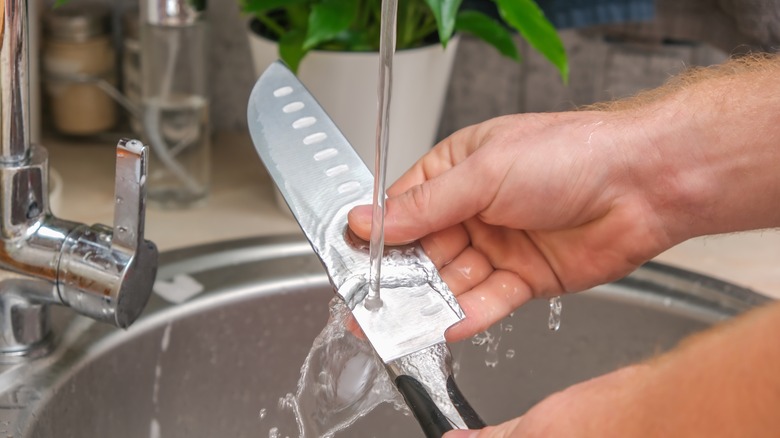Quick show of hands — who’s guilty of leaving their freshly washed cutlery at the bottom of the sink at least once? Well, you’re not alone! We’ve all done it at some point. While it might seem harmless, this habit can wreak havoc on your knives (and other cutleries and utensils) if it becomes a regular occurrence.
The sink is a receptacle for all things dirty and wet. After a few rounds of dirty plates and bowls, you’ll find a bunch of food scraps accumulating at the sink’s bottom. If you’ve just painstakingly cleaned your knives, all those food bits will cling right back onto the metal, undoing all your hard work.
Your knife set often has to share their sink real estate with heavyweight items like pots, pans, and mixing bowls, too. When these clunky items are dropped, which happens more often than we’d like to admit, they can sometimes damage the delicate edges of knife blades, causing chips or cracks. There’s also the safety concern. A hidden, sharp blade under a mound of dishes that you have to sift through is a scary thought. It’s in your knives’ interest (as well as your safety) that you take some time to set them aside, out of the sink, once you’re done washing them.
Moisture is your knife’s natural enemy

Setting physical damage and contamination aside, leaving your knives in the sink exposes them to a hidden enemy: moisture. Even if your knives are crafted from stainless steel, prolonged submersion in water can lead to discoloration. Moreover, if the sink water is salty (which is often due to sauces, marinades, and so on), even stainless steel can fall victim to rust. This rust not only impacts the knife’s appearance but can also degrade its sharpness and overall lifespan.
To preserve your knife set and keep them in top-notch condition, proper storage is essential. That’s where a dependable knife block becomes your kitchen’s best friend. Keep it within easy reach, ideally near the sink, for convenient access as you clean your knives.
After each wash, simply slide the freshly cleaned blade into the block. This simple practice ensures the blades stay dry, effectively safeguarding them from rust. It also offers protection against chipping and dulling. That way, you’ll always have a set of sharp, rust-free blades ready to tackle the next great recipe that comes your way!







